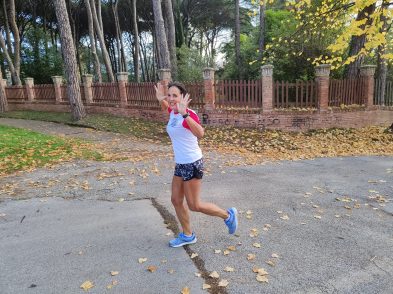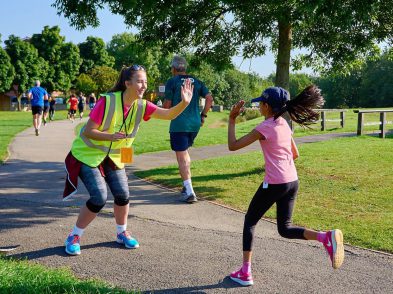I genuinely do not believe that I could have been any more shocked if you had picked me up and dumped me on Mars and told me to get on with it, alone.
At the beginning of March, the Italian government with a huge dose of courage and foresight shut down all Italian schools overnight. And I was admittedly one of the first to question this decision. My daughter came home at 5 in the afternoon and it was confirmed that schools were shutting down that very evening, so we were unable to collect books, personal belongings and other educational paraphernalia. Where was the harm, we thought, in closing one or two days later and allowing us to prepare? Several weeks on, during lockdown, I recognised the immense logic and common sense in closing down operations hard and fast. After all, total lockdown for the whole of Italy followed just a few days later.
The first week was absolutely a holiday. We were allowed to go and pick up stuff from the school according to a strict timetable, and we hung out at home. I have been working from home for over ten years now, so finding something to keep my kid occupied for about six hours each day was not that hard; I have done the long Italian school holidays many times. For week one.
But then there was week two, and then week three. Realisation slowly dawned that this was a medium– to long-term lifestyle, and that realisation was overwhelming. Not just for us parents, but also for the teachers and the kids of course. At this point, I believe the local council education councillors were mostly crying. We were all (and to some extent still are) thrust into a new world, a new lifestyle, a new way of thinking with literally zero preparation. It was painful.
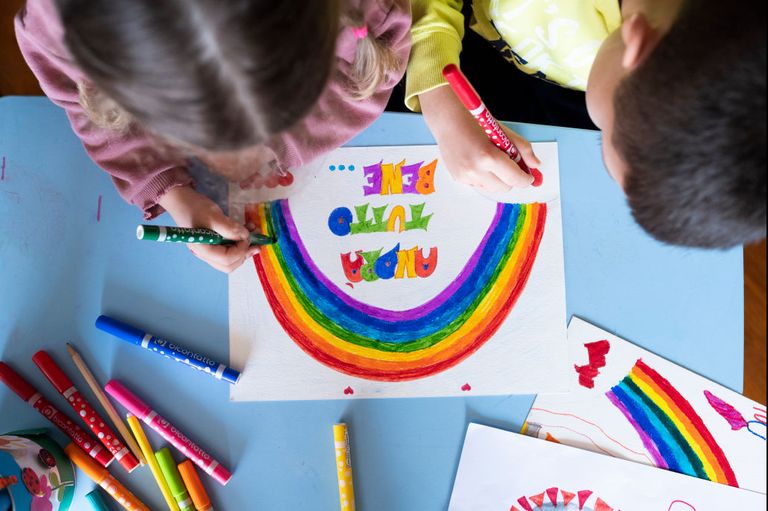
The hugely under-utilised school virtual platform suddenly became our focal point for downloading educational exercises, which the teachers laboured over for hours (simply tackling uploading requirements). The formats were varied and often inaccessible, the abilities of parents to access the files varied from family to family, and the frustration of kids, used to having their teachers on hand to explain everything, was chasmic. The platform often crashed from overuse. Families and teachers struggled with understanding the capabilities and limits of the platforms, and classroom WhatsApp chats exploded under a tidal wave of helplessness and negative sentiment.
Enter Zoom. A whole new world of video conferencing tools was unearthed, which took a little getting used to, brought up issues of digital security and got the kids back in touch with each other via video (that very first conference call had many parents in tears!). However, it inevitably excluded some kids.
Those excluded? We made the discovery that low bandwidth is not going to manage video and audio calls. There were families with low data connections, families with none at all, families with two devices and three kids (plus parents who work from home) and families who had never even touched a smartphone. Suddenly, the relative quality of the classroom scenario was thrown into complete disarray. The factors that dictate a child’s engagement in any school activity were turned upside down. Great teachers became poor ones, and the same applied to students too. The new skill set (regarding life and digital skills) was a really big deal for everyone.
Then, of course, there was the physical set-up of the new classroom: small apartments with limited space and tiny balconies, large houses with extra rooms and large gardens, and everything in between. Homes that could create dedicated study areas and homes where parents would have to clear the kitchen table to let the kids study, amid family mealtime management chaos. Moreover, there are homes with multiple kids of different ages who all have their own programmes and timetables to follow.
Emotional reactions, anger and frustration were rife in the community. That inevitably led to criticism and finger-pointing. Heated and pointless discussions kicked into action on that very platform that gives us the best and worst of digital life: WhatsApp.
So the time was ripe for pushing past the problems. It quickly became very evident that we were in this situation for the long haul. And we had to find working solutions for everybody.
What happened next was a tsunami-sized, multi-generational digital revolution across whole sectors of educational society, including such events as:
- Local support services for families in need (food, etc.).
The local council asked our permission as parents to “ransack” the school supplies and redistribute them to the local community. The answer was a resounding yes. - Local council involvement in kick-starting distance-learning.
At the very beginning we had a team of families with printers, plus our local council, involved in a system of “print and drop” envelopes with the week’s schoolwork at food stores, so that they could be picked up by families with no printer or computer. - Distribution of smartphones, tablets, computers and sim cards.
The next step was to help families get online, even those with no experience. In my personal experience, the local council proved invaluable, ensuring that every kid somehow could be connected (there was an emotional moment when finally the last kid joined my daughter’s virtual classroom—massive applause and shouts of sheer joy!). - Free online psychological support.
This service was quickly provided and proved invaluable to many. - Buddying systems.
We set up a system of “buddying”, where families with specific difficulties (lack of digital knowledge, language limitations, etc.) were supported by another family who look out for them, and keep them on track, in private conversations. - Intergenerational involvement.
Kids, parents and indeed grandparents have been thrust into a digital world, of which they generally knew very little. Many of the older generations who previously would have declared the task to hand “impossible” got on with it and battled through with incredible success.
What we learned
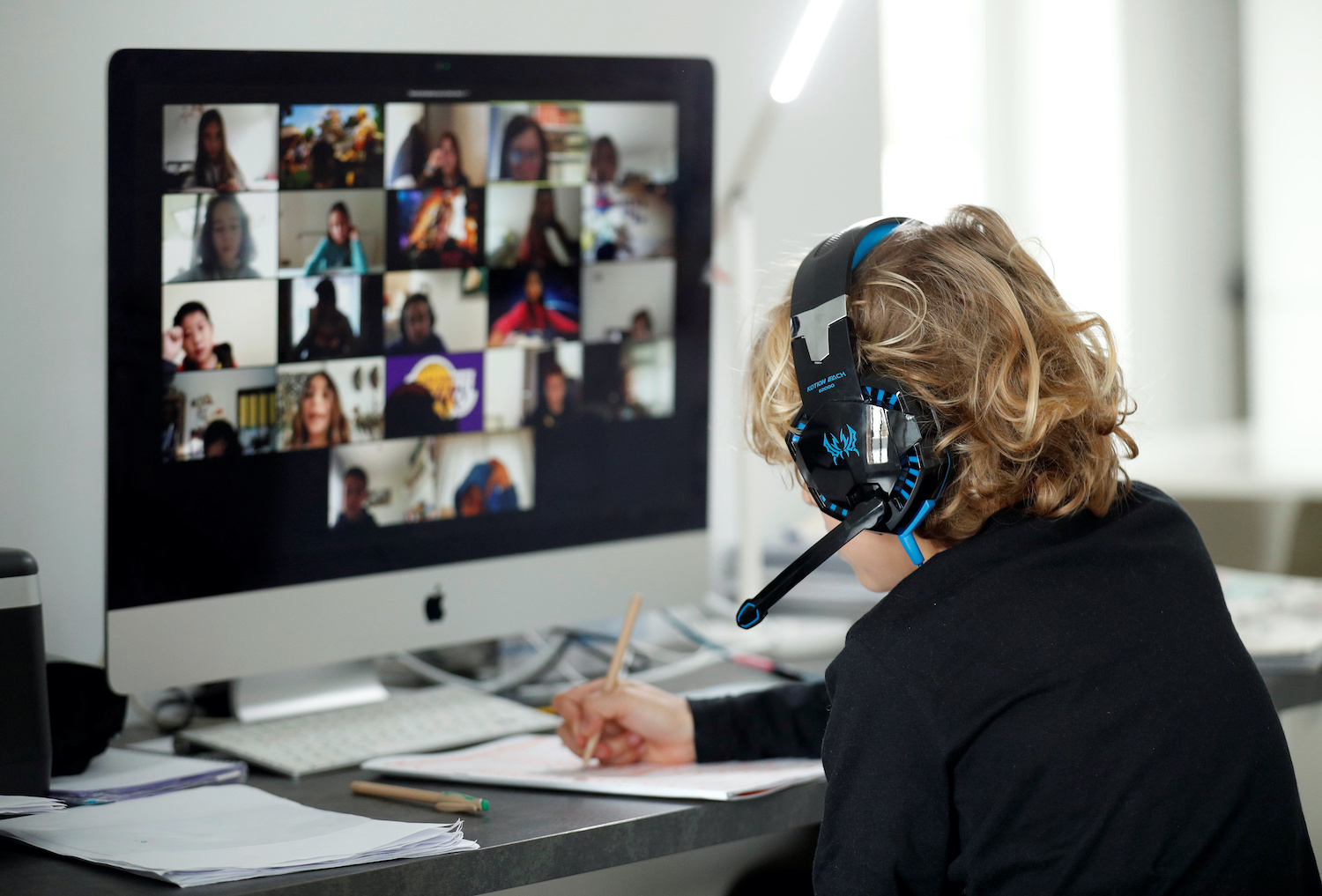
- New general digital skills, across the generations, were born.
Grandparents found new ways to interact with grandchildren. Families discovered how to have a closer relationship with family members who live abroad. It’s not just about applying new-found skills to school. WhatsApp groups, Facebook parties and collaborative platforms: schoolwork forced many families to get up close and personal with these realities, with stunning and wide-ranging results. - Zoom skills for so much more than simple lessons!
We celebrated birthdays, had memorial services, drunk aperitivo and eaten dinners, played cards, prepared homework together with our friends and loved ones thanks to Zoom. So many people discovered the potential of collaborative tools and sharing platforms thanks to the onus of schoolwork for the kids. - New educational skills.
We found out that we can visit museums all around the world online. Google Street Views allows us to take a peek at the centre of a favourite city, or even enter a historical monument or two. Audible gives our kids the chance to listen to amazing tales from around the world. Fabulous, and free, educational sites were discovered (and we shared them via a Google doc with other parents in the school). Joe Wicks, the British keep-fit phenomenon, kicked off a 30-minute daily class for kids in confined spaces, and was soon to be followed by grandmothers in Thailand! - Offline school.
Many of us discovered a new kind of offline and very different “school” we simply hadn’t had time to delve into in pre-Covid times. Cooking, mending things, cleaning, preparing the shopping list, creating things out of cardboard boxes, inventing games, taking care of pets and many others. These are things that it is so hard to fit into a normal day, yet our Covid “holidays” gave us just the time we needed as parents to involve our kids in running a household. - Spending time in nature.
Lots of kids had the opportunity to have real field trips. A walk in the garden or the local countryside, reading by a stream, picnic lunch in a field, a run in a meadow. For the sake of clarity, my daughter’s school is in a tiny Tuscan village, so many of the kids live in rural areas, with plenty of access to the outside in total isolation, even during lockdown. And they very much took advantage of that. - Parents changing roles.
Pre-Covid, I didn’t really have any idea what my daughter was doing at school. I don’t mean in terms of educational content (you see the homework at weekends), but in terms of relationships, ability to communicate, friendships and relationships (with staff, not just other kids). It is eye-opening to see your kids interact in their virtual classrooms; it is like getting to know them in a whole different way. - Parents who emerged as teachers.
We had the awesome experience of having parents with a specific skill (English language, coding, etc.) who emerged as teachers, able to impart their knowledge via the newly found platforms for the benefit of all.
What comes next for schools, parents and children?
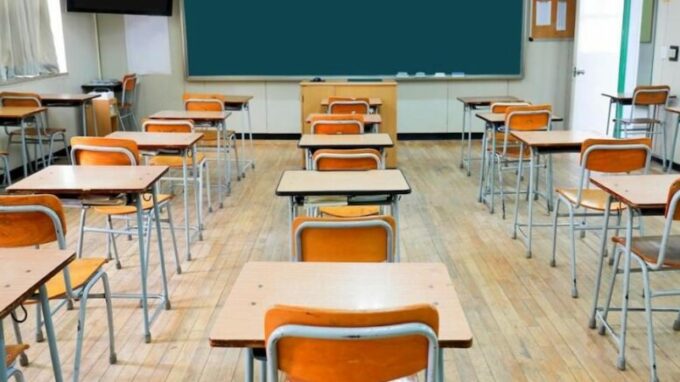
We coped. We coped magnificently (the collective “we”: kids, families, teachers, school support staff, local councils, contractors and many others). You probably know the saying “it takes a village”; we were a vast village, and a source of a thousand different know-hows. Eventually we mostly got there: a good routine, understanding online school, creating a work schedule with our kids etc. The tomorrows became less terrifying and stressful.
Who knew we could have achieved that back at the beginning of the year? Had any kind of move been made to move towards this kind of schooling in pre-Covid19 times, I am absolutely certain that it would have been met with huge resistance, and declared impossible. Yet we did it, we all did it. And are still doing it, and improving every day.
We are not under the illusion that school will be back to normal anytime soon. Countries such as Denmark opened up schools on a part-time basis for each individual kid, ensuring that just small groups of children interact with each other, and with a limited amount of teacher contact. The Italian government and local councils are considering all the possibilities: see the plan announced by the City of Florence here.
Petitions declaring the right of children to have access to full-time schooling every single day emerged in milliseconds. Understandably so. As the country has reopened, parents are obliged to return to their jobs, which require them to be out of the home for eight or nine hours a day. Society, to date, has been structured around kids being at school for most of the day, thus allowing parents to work full-time jobs. That is a life condition that many families are eager to reclaim.
My very personal opinion is that I would very much love the new skills acquired by my family to move forward into the future for many different reasons. Easy examples are students or teachers who are off school with medium-term medical issues (a broken leg, or a contagious but symptomless disease), where they may be well enough to study/work but cannot physically attend classes. Or perhaps the child who needs to be abroad/absent for any length of time (family bereavement, family temporary relocation, etc.) and could easily log on and follow lessons.
Over and above those reasons, we have struggled so hard to acquire these new skills, and have learnt so much about what education is as families, I would be reluctant to let that go. Whilst we can leave things like the history, geometry, science and Italian language curriculum to the competent school staff, I don’t want to give up coding, reading and following recipes, devising a weekly timetable, watching and discussing “Animal Logic”, watching short documentary videos on YouTube, walks with the dog and training her not to chase pigeons and small children together with my daughter (and having her take responsibility for that), reading books together sitting in the sun, long discussions about the things that we just did, and lots more besides. The normal week for us (and I believe most families with children) is scrambling to get them on time to wherever they have to be next (school runs at either end of the day, plus after-school activities and sports, shower, dinner, bed: repeat).
Of course, face-to-face contact with school staff and students is vital to the kids, and its absence over the past months has brought innumerable problems for children and adults alike. But a balance could surely be found. As a veteran teleworker, I know that teamwork/training/being social can happen at a distance, but I have always been rather in the minority. Not anymore: now I have five year olds on my side!
How do I see this working? I would welcome projects for the kids using some of the tools we discovered during lockdown. A system for including kids in lessons directly if they are off school and not feeling rough (a car broke down, or strained ankle, or whatever) would be magical. I would even welcome an optional virtual day (once a week, fortnight, month: whatever works) when kids may stay at home and virtually connect to lessons. To use a topical (and possibly unfortunate) analogy “herd know-how”, even if all the kids don’t get the chance to work virtually, enough will, so that should anything like this ever happen again the knowledge within the group can be made available to all without the tears. Now that would be a great way to keep our newly acquired knowledge relevant and up-to-date.
Tears have figured largely over the Italian three-month school lockdown. Sometimes from joy, but mostly from feeling overwhelmed, angry, lonely and frustrated (adults and kids alike). I sincerely hope that some of those tears will provide the perfect growing conditions for a new approach to school life in some measure in the future. Roll on September, and to greeting the new school measures that we still don’t really know about.


